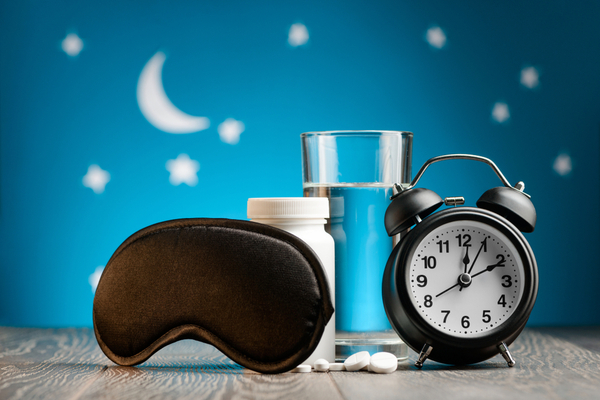May is Better Sleep Month, so it’s a good time to dive into the hype about melatonin. What it is, what it can do for you, and if you should be taking it.
Melatonin has exploded over the last 5 years and is now a billion-dollar industry, but it doesn’t work the way most people think. Your body produces melatonin throughout the day, and peaks at night. When your brain senses darkness, your pineal gland produces more melatonin and signals that it’s time for you to sleep.
In other words, melatonin helps you manage your sleep-wake cycle. If you produce too much melatonin — as can happen during the winter with fewer daylight hours — it can lead to Seasonal Affective Disorder (SAD).
While research doesn’t suggest melatonin is dangerous, it’s still a hormone, and there are many questions about its effectiveness and safety.
It’s important to know that melatonin is not addictive. However, it’s also not entirely free of side effects. When you have too much melatonin, it can lead to grogginess, nausea, headaches, fatigue, confusion, nightmares, and low blood pressure. And if you take other medications, be sure to check with your doctor because it has many potential interactions.
Melatonin is likely most effective if you’re a shift worker or fighting jet lag to help reset your sleep-wake cycle. But it’s not the best approach for restlessness or insomnia. Instead, you’ll benefit more from naturally resetting your circadian rhythm by getting sunlight into your eyes in the morning and limiting light and screen time at night (Remember, your body produces more melatonin when it senses that it’s nighttime, so fewer things that bring light into your eyes will help you sleep).
A recent study found that 88 percent of melatonin gummies were mislabeled — some had less, many had much more, and one had no melatonin and instead was filled with CBD. So if you do choose to use melatonin, make sure you look for products that have third-party verification, such as NSF, Informed Sport, or USP.
—
Photo Credit: Yuriy Golub / Shutterstock.com
